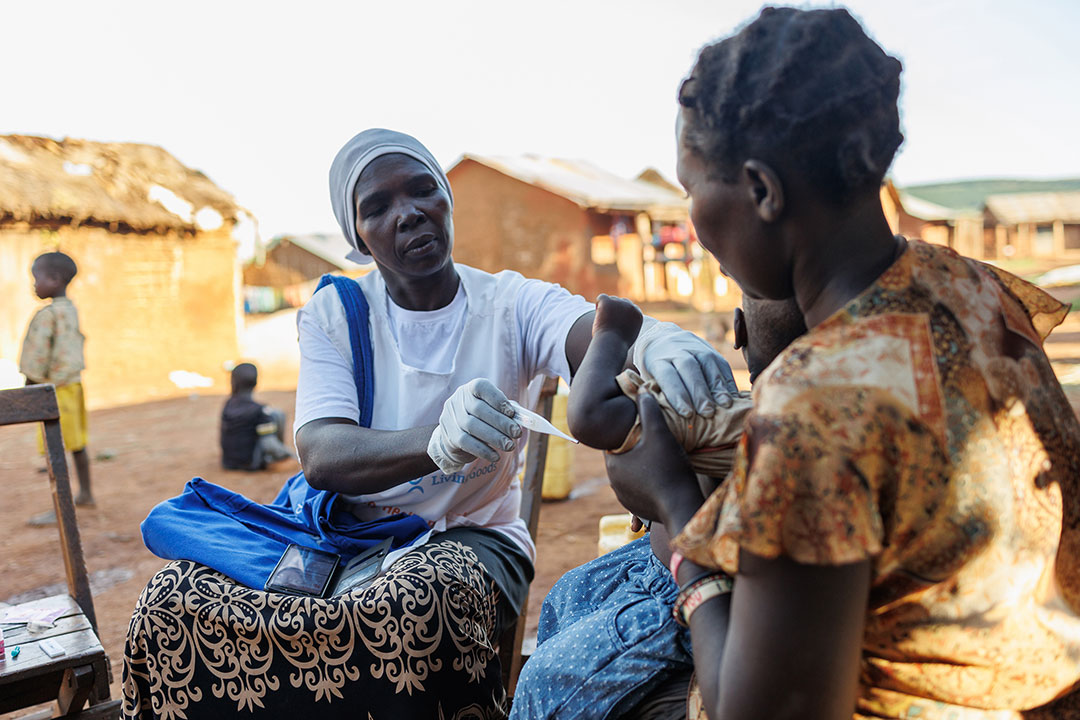The world needs Gavi now more than ever
When I join Gavi in January, it will be at a time when it is contemplating the most ambitious period in its history.
- 29 September 2020
- 4 min read
- by José Manuel Barroso

Action on development and a desire to protect and strengthen our system of global governance are two passions that I have carried with me throughout my political life. As the next Chair of Gavi, the Vaccine Alliance, having the opportunity to combine both of these passions by helping Gavi drive through the ambitious goals of its next strategic period and further establish its unique public-private structure as a model for multilateral cooperation makes me incredibly proud and excited.
I was 31 years old when I became responsible for Development Cooperation as Deputy Minister of Foreign Affairs in my home country of Portugal. It was a privilege that enabled me to work directly with over 30 countries in Africa alone, and lead a number of missions where I saw first-hand not only the importance but the transformational effect that development cooperation, namely in the fields of education and health, can have on a nation’s future path.
Gavi is a great example, perhaps the best, of a model for international cooperation fit for the 21st century.
I later served as both Minister of Foreign Affairs and Prime Minister. During this time in national politics, development issues remained of high importance to me. I served as mediator of the peace process for Angola, played a role in bringing about the referendum that led to the independence of East Timor and proactively built and strengthened Portugal’s networks and relationships across the Global South.
To me, development is not just about richer countries helping poorer ones, although this is important, it is also about putting in place long-term, positive change that benefits everyone. During my Presidency of the European Commission between 2004 and 2014, among initiatives, I helped oversee renewed efforts to combat climate change, advance the cause of women in leadership and protect workers from the destabilizing effects of globalization. I was proud to accept the Nobel Peace Prize in 2012 on behalf of the European Union and l remain a strong believer that the EU has been a force for good in the world – including beyond its borders - throughout its history.
I love the country where I am from and am proud to call myself Portuguese. But I am also a citizen of the world. We all are. In our world there has never been a greater need for innovative mechanisms of international governance that are able to overcome national interest and allow countries to fight shared challenges together. When faced with so many threats and challenges in this world, that is more complex and interconnected than ever, we can no longer just say: “your” side of the boat is sinking!
Have you read?
Gavi is a great example, perhaps the best, of a model for international cooperation fit for the 21st century. Established in 2000, it has succeeded not only in preventing the deaths of millions of children but in uniting countries behind a single goal: that by protecting all children equally from preventable disease, you not only give health but you give hope and prospects, two equally precious commodities.
When I join Gavi in January, it will be at a time when it is contemplating the most ambitious period in its history.
The generations of children that have now grown up protected against a range of diseases thanks to Gavi are also a powerful reminder of the contribution that public health can make to peace, stability, economic growth and social justice.
Another reason for Gavi’s success has been its innovative operating model and its ability to engage civil society and the private sector in its work. In today’s world, bringing together public, private, international institutions and civil society organizations as well as the scientific community demonstrates that when acting jointly we are stronger than the sum of our individual efforts.
When I join Gavi in January, it will be at a time when it is contemplating the most ambitious period in its history. Not only to reach a record number of children with life-saving vaccines but those that are hardest to reach. At the same time, it remains committed to delivering the countries it helps to a path of self-reliance, notably through the strengthening of its health systems. Gavi must also play a pivotal role in applying its expertise and experience to help the world out of the biggest economic and social crisis in a lifetime, COVID-19. I am aware of the great challenge this presents, to Gavi and to me as a leader. I am also aware of the legacy left by my immediate predecessor, Dr Ngozi Okonjo-Iweala, whose time at Gavi saw her guide the organization through the introduction of Ebola vaccines and more recently the challenge of responding to COVID-19. I look forward to joining Gavi on its journey, and relish the prospect of helping it tackle the tasks that lie ahead.









